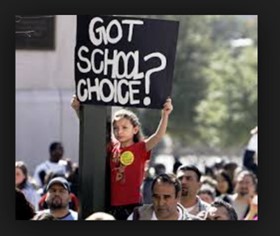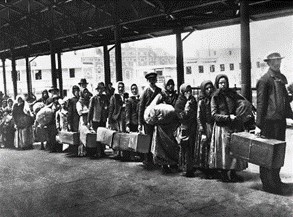Fall 2017 Seminars
 The Ethics and Ideology of Choice
The Ethics and Ideology of Choice
MLS 501-001
Dr. Karey Harwood
Wednesdays 6-8:45 PM
MALS is proud to present “The Ethics and Ideology of Choice,” taught by Dr. Karey Harwood. This course will explore the ethical foundations and parameters of individual choice through an in depth examination of two contemporary cases: reproductive/genetic choice and school choice/segregation. We will begin with a theoretical discussion of choice, including its goals and its limits. Readings will range from Enlightenment understandings of autonomy to more contemporary and libertarian understandings of consumer preference. For our case studies, readings will be drawn from the following: From Chance to Choice, by Allen Buchanan, Dan Brok, Norm Daniels, and Daniel Wikler; Better than Human: The Promise and Perils of Enhancing Ourselves by Allen Buchanan; Choosing Tomorrow’s Children: The Ethics of Selective Reproduction by Stephen Wilkinson; The Infertility Treadmill: Feminist Ethics, Personal Choice, and the Use of Reproductive Technologies by Karey Harwood; The Death and Life of the Great American School System: How Testing and Choice are Undermining Education by Diane Ravitch; Five Miles Away, A World Apart: One City, Two Schools, and the Story of Educational Opportunity in Modern America by James Ryan; and In Brown’s Wake: Legacies of America’s Educational Landmark by Martha Minow. The course as a whole is fundamentally interdisciplinary, drawing on resources from philosophy, religious studies, sociology, education policy, and science and technology.
 Migration and Immigration
Migration and Immigration
MLS 501-002
Dr. Shelley Garrigan
Thursdays 6-8:45 PM
MALS is proud to present “Migration and Immigration,” taught by Dr. Shelley Garrigan. “Immigrant” and “migrant” are terms that are neither neutral nor self-evident. Instead, the spaces, contexts and semantics through which they surface reveal deep-seated anxieties that contradict both the “nation of immigrants” narratives that ground U.S national history and our daily consumption of goods and services that are the direct products of globalized economies. Far from speaking for itself, the “immigrant issue” exists on a continuum that reveals cultural distress around issues of space and resources as well as well- being and identity. In this course, we will explore the themes of migration and immigration with a primary focus on cultural representations (films, media, news, literature, art and performance), while at the same time situating the U.S. experience globally by exploring current developments in other geographical and political contexts.